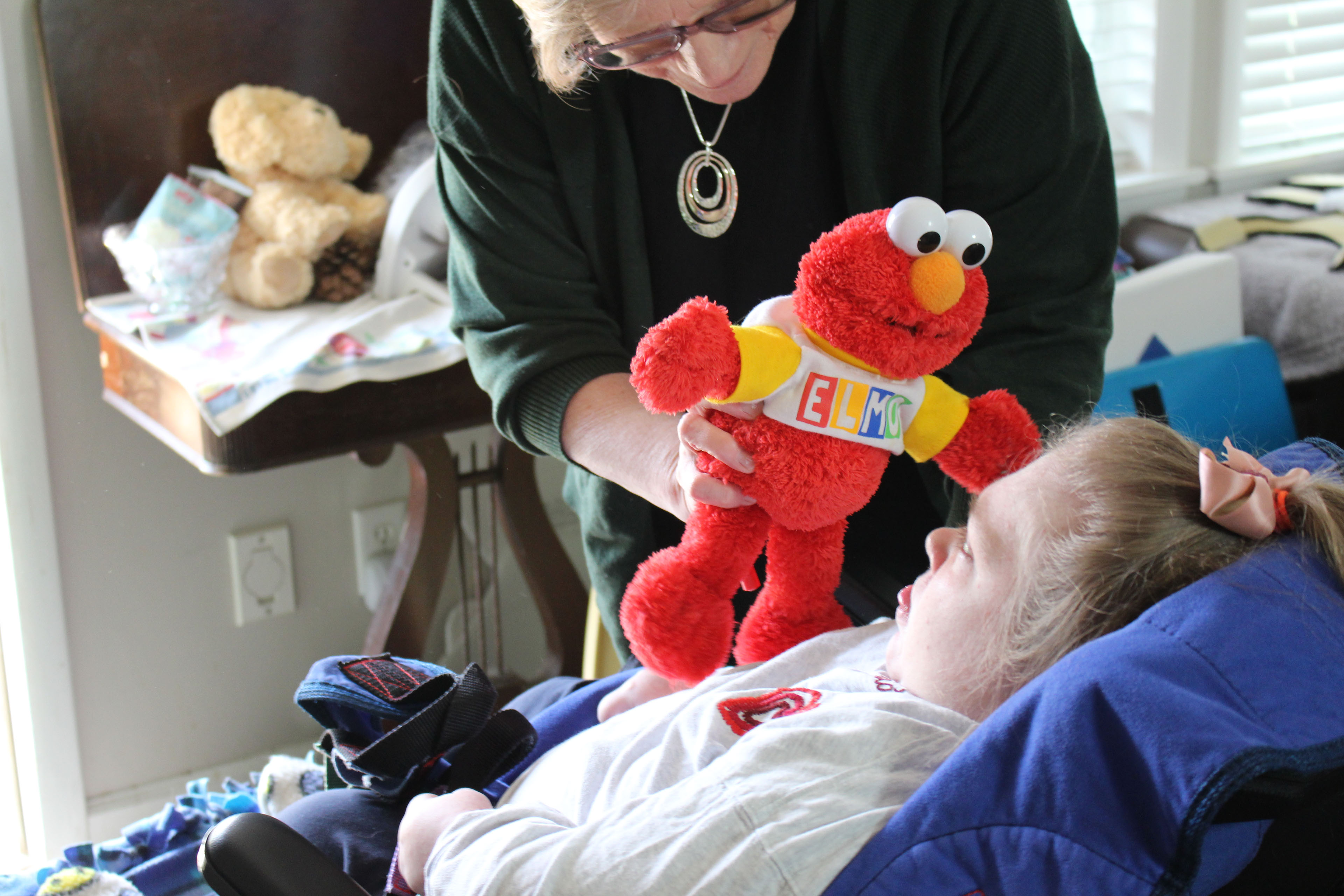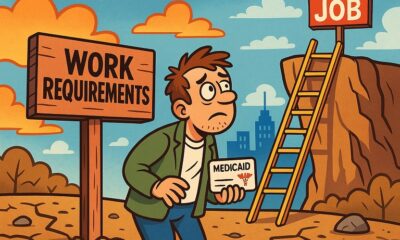Kaiser Health News
Legal Questions, Inquiries Intensify Around Noble Health’s Rural Missouri Hospital Closures
by Sarah Jane Tribble, Kaiser Health News
Thu, 23 Mar 2023 09:00:00 +0000
A year after private equity-backed Noble Health shuttered two rural Missouri hospitals, patients and former employees grapple with a broken local health system or missing out on millions in unpaid wages and benefits.
The hospitals in Audrain and Callaway counties remain closed as a slew of lawsuits and state and federal investigations grind forward.
In March, Missouri Attorney General Andrew Bailey confirmed a civil investigation. He had previously told local talk radio that there was an “ongoing” investigation into “the hospital issue.”
Bailey’s comment came weeks after the U.S. Department of Labor’s Employee Benefits Security Administration notified executives tied to Noble Health, a startup, that they had violated federal laws and asked them to pay $5.4 million to cover unpaid employee health insurance claims, according to a 13-page letter detailing “interim findings” that was obtained by KHN.
The January letter confirms KHN’s previous reporting, which was informed by employees and patients who described missing paychecks; receiving unexpected, high-dollar medical bills; and going without care, including cancer treatment. According to the letter from federal investigators, the Noble hospitals and their corporate owners collected employee contributions for medical, dental, and vision insurance in 2021 and 2022 but then failed to fund the insurance plans.
The owners and executives were “aware of the harm to participants and, in some cases, were attempting to resolve individual participant complaints,” the letter states, adding that “despite the volume and gravity of complaints and bills received,” they failed to respond.
‘Tomfoolery’ and Doing ‘Everybody Dirty’
Marissa Hagedorn, who worked as a hospital laboratory technician, has spent much of the past year starting a new job, caring for her 2-year-old son who was born with spina bifida, and haggling over unpaid medical bills. She told KHN the family owes at least $8,000 for son Ryder’s specialty care in St. Louis, with $6,000 of that in collections. As a Noble employee, Hagedorn said, she was told repeatedly that her employee health insurance would cover Ryder’s care. It didn’t.
Noble has “done everybody dirty,” she said. “We just would like for some responsibility to be taken by this company that didn’t feel the need to get their act together.” Hagedorn’s story of unpaid bills, which was first reported by the local newspaper, the Mexico Ledger, is common among former Noble employees a year after the hospitals closed.
A former employee of the Fulton hospital has filed a class-action lawsuit intended to represent hundreds of employees from both hospitals.
The Jan. 13 letter from federal officials called for responses by Jan. 27 from Noble corporate and hospital executives as well as Platinum Neighbors, which last April bought the hospitals and assumed all liabilities. The letter instructs executives to contact the agency “to discuss how you intend to correct these violations, fund participant claims, and achieve compliance.”
Former employees say their claims have not yet been paid. A Labor Department spokesperson, Grant Vaught, said the agency could not comment on an ongoing investigation.
Separately, the Kansas Department of Labor is reviewing Noble and Platinum’s failure to pay wages and severance to corporate employees. Agency spokesperson Becky Shaffer confirmed that hearings took place in early February on a half-dozen cases totaling more than $1 million in claims for unpaid wages and severance.
Dave Kitchens was among those who filed claims against Noble Health. Kitchens worked briefly as a contract employee and then was hired in October 2021 as a corporate controller, an accounting role in which he was responsible for financial reporting and data analytics. Kitchens provided an audio recording of his hearing to KHN and hopes to eventually get paid more than $90,000 in lost wages, benefits, and severance pay. During the hearing, Kitchens told the administrative judge: “I would just like to be paid what I’m owed.”
Kitchens, who is also named as a fiduciary on the federal investigation, said he was not on Noble’s executive team. When asked by Kansas Administrative Law Judge James Ward whether he expected Noble or the secondary buyer Platinum to pay his wages, Kitchens responded he had “no idea who was in charge.”
“I believe there was some tomfoolery,” Kitchens said.
A ‘Rabbit Hole’ of Responsibility
Noble launched in December 2019 with executives who had never run a hospital, including Donald R. Peterson, a co-founder who prior to joining Noble had been accused of Medicare fraud. Peterson settled that case without admitting wrongdoing and in August 2019 agreed to be excluded for five years from Medicare, Medicaid, and all other taxpayer-funded federal health programs, according to the Health and Human Services Office of Inspector General.
By March 2022, the hospitals had closed and Noble offered explanations on social media, including “a technology issue” and a need to “restructure their operations” to keep the hospitals financially viable. In April, Texas-based Platinum Neighbors paid $2 for the properties and all liabilities, according to the stock purchase agreement.
Despite receiving approval for nearly $20 million in federal covid-19 relief money before it closed the hospitals — funds whose use is still not fully accounted for — Noble had stopped paying its bills, according to court records. Contractors, including nursing agencies, a lab that ran covid tests and landscapers, have filed lawsuits seeking millions.
In Audrain County, where community members still hope to reopen the hospital or build a new one, county leaders filed suit for the repayment of a $1.8 million loan they made to Noble. Former Missouri state senator Jay Wasson also filed suit in September, asking for repayment of a $500,000 loan.
Two Noble Health real estate entities filed bankruptcy petitions this year. One Chapter 11 bankruptcy filing names the Fulton hospital property in Callaway County as an asset and lists nearly $4.9 million in liabilities. A third bankruptcy filing by FMC Clinic includes Noble Health as a codebtor.
In the U.S. District Court of Kansas, Central Bank of the Midwest is suing Nueterra Capital over a $9.6 million loan Noble used to buy the Audrain hospital. The bank alleges Nueterra, a private equity and venture capital firm that in 2022 included Noble as part of its portfolio, signed off as the guarantor of the loan.
Federal investigators listed nearly a dozen people or entities connected to Noble Health as fiduciaries who they say are personally responsible for paying back millions in unpaid medical claims. The letter also detailed Noble Health’s ownership for the first time. The owners included William A. Solomon with a 16.82% share, Thomas W. Carter with a 16.82% share, The Peterson Trust with a 19.63%, and NC Holdings Inc. with 46.72%.
NC Holdings is also listed on the stock sale agreement with Platinum along with several signatures including Jeremy Tasset, chief executive of Nueterra Capital.
Tasset did not respond to a request for comment for this article. In an email to KHN in March 2022, the Nueterra Capital CEO wrote, “We are a minority investor in the real estate and have nothing to do with the operations of the hospitals.” In May 2022, Tasset wrote in an email to KHN that “everything was sold (real estate included) to Platinum Neighbors, a subsidiary of Platinum Team Management.”
It is unclear who owns and controls The Peterson Trust, which federal investigators identified. Peterson, who is listed on Noble’s state registration papers as a director and in other roles, didn’t respond to requests for comment for this article. He previously told KHN that his involvement in Noble didn’t violate his exclusion, in his reading of the law.
He said he owned 3% of the company, citing guidance from the Office of Inspector General for the U.S. Department of Health and Human Services. Federal regulators may exclude companies if someone who is banned has ownership of 5% or more.
In March 2022, Peterson created Noble Health Services, which federal investigators note in their letter was “established to restructure the ownership of multiple Noble entities.” Peterson dissolved that company in July 2022, according to a Missouri business filing.
In September, Peterson posted on LinkedIn that he was “sitting in the Emirates Air lounge in Dubai” to finish up due diligence on “launching a new business.”
A 2013 OIG advisory states that “an excluded individual may not serve in an executive or leadership role” and “may not provide other types of administrative and management services … unless wholly unrelated to federal health care programs.”
KHN examined the federal system meant to stop health care business owners and executives from repeatedly bilking government health programs and found that it failed to do so.
The OIG keeps a public list of people and businesses it has banned from all federal health care programs, such as Medicare and Medicaid. KHN’s review found a system devoid of oversight and rife with legal gray areas.
In the wake of KHN’s reporting, Oregon Sen. Ron Wyden, a Democrat who is the chair of the powerful Senate Finance Committee, said “it’s imperative that federal watchdogs can ensure bad actors are kept out of Medicare.” Sen. Chuck Grassley (R-Iowa) said the government needs to do more and “it’s also up to private-sector entities to do a better job checking against the exclusions list.”
“We can’t just depend on one or the other to do everything,” Grassley said.
In recent months, the Missouri hospitals appear to have been sold twice more, according to public records. Oregon-based Saint Pio of Pietrelcina notified state officials of a change of ownership in December and requested an extension of the hospital licenses, which was denied. In January, Audrain County officials, in its lawsuit, revealed another owner named Pasture Medical, which registered as a Wyoming company on Dec. 27, 2022.
“We haven’t come out of the rabbit hole on this one,” said Steve Bollin, director of the division of regulation and licensure for the Missouri Department of Health and Senior Services. Bollin’s agency, which conducts inspections and approves hospital changes in ownership, said he would support his agency doing financial reviews.
“It’s probably not a bad idea that someone takes a little bit deeper dive. We don’t have that many changes of ownership, but we would need appropriate staffing to do that, including some really good CPAs [certified public accountants].”
KHN (Kaiser Health News) is a national newsroom that produces in-depth journalism about health issues. Together with Policy Analysis and Polling, KHN is one of the three major operating programs at KFF (Kaiser Family Foundation). KFF is an endowed nonprofit organization providing information on health issues to the nation.
USE OUR CONTENT
This story can be republished for free (details).
By: Sarah Jane Tribble, Kaiser Health News
Title: Legal Questions, Inquiries Intensify Around Noble Health’s Rural Missouri Hospital Closures
Sourced From: khn.org/news/article/noble-health-missouri-hospital-closures-legal-questions-private-equity/
Published Date: Thu, 23 Mar 2023 09:00:00 +0000
Did you miss our previous article…
https://www.biloxinewsevents.com/?p=228121
Kaiser Health News
Cutting Medicaid Is Hard — Even for the GOP
The Host
Julie Rovner
KFF Health News
Julie Rovner is chief Washington correspondent and host of KFF Health News’ weekly health policy news podcast, “What the Health?” A noted expert on health policy issues, Julie is the author of the critically praised reference book “Health Care Politics and Policy A to Z,” now in its third edition.
After narrowly passing a budget resolution this spring foreshadowing major Medicaid cuts, Republicans in Congress are having trouble agreeing on specific ways to save billions of dollars from a pool of funding that pays for the program without cutting benefits on which millions of Americans rely. Moderates resist changes they say would harm their constituents, while fiscal conservatives say they won’t vote for smaller cuts than those called for in the budget resolution. The fate of President Donald Trump’s “one big, beautiful bill” containing renewed tax cuts and boosted immigration enforcement could hang on a Medicaid deal.
Meanwhile, the Trump administration surprised those on both sides of the abortion debate by agreeing with the Biden administration that a Texas case challenging the FDA’s approval of the abortion pill mifepristone should be dropped. It’s clear the administration’s request is purely technical, though, and has no bearing on whether officials plan to protect the abortion pill’s availability.
This week’s panelists are Julie Rovner of KFF Health News, Anna Edney of Bloomberg News, Maya Goldman of Axios, and Sandhya Raman of CQ Roll Call.
Panelists
Anna Edney
Bloomberg News
Maya Goldman
Axios
Sandhya Raman
CQ Roll Call
Among the takeaways from this week’s episode:
- Congressional Republicans are making halting progress on negotiations over government spending cuts. As hard-line House conservatives push for deeper cuts to the Medicaid program, their GOP colleagues representing districts that heavily depend on Medicaid coverage are pushing back. House Republican leaders are eying a Memorial Day deadline, and key committees are scheduled to review the legislation next week — but first, Republicans need to agree on what that legislation says.
- Trump withdrew his nomination of Janette Nesheiwat for U.S. surgeon general amid accusations she misrepresented her academic credentials and criticism from the far right. In her place, he nominated Casey Means, a physician who is an ally of HHS Secretary Robert F. Kennedy Jr.’s and a prominent advocate of the “Make America Healthy Again” movement.
- The pharmaceutical industry is on alert as Trump prepares to sign an executive order directing agencies to look into “most-favored-nation” pricing, a policy that would set U.S. drug prices to the lowest level paid by similar countries. The president explored that policy during his first administration, and the drug industry sued to stop it. Drugmakers are already on edge over Trump’s plan to impose tariffs on drugs and their ingredients.
- And Kennedy is scheduled to appear before the Senate’s Health, Education, Labor and Pensions Committee next week. The hearing would be the first time the secretary of Health and Human Services has appeared before the HELP Committee since his confirmation hearings — and all eyes are on the committee’s GOP chairman, Sen. Bill Cassidy of Louisiana, a physician who expressed deep concerns at the time, including about Kennedy’s stances on vaccines.
Also this week, Rovner interviews KFF Health News’ Lauren Sausser, who co-reported and co-wrote the latest KFF Health News’ “Bill of the Month” installment, about an unexpected bill for what seemed like preventive care. If you have an outrageous, baffling, or infuriating medical bill you’d like to share with us, you can do that here.
Plus, for “extra credit” the panelists suggest health policy stories they read this week that they think you should read, too:
Julie Rovner: NPR’s “Fired, Rehired, and Fired Again: Some Federal Workers Find They’re Suddenly Uninsured,” by Andrea Hsu.
Maya Goldman: STAT’s “Europe Unveils $565 Million Package To Retain Scientists, and Attract New Ones,” by Andrew Joseph.
Anna Edney: Bloomberg News’ “A Former TV Writer Found a Health-Care Loophole That Threatens To Blow Up Obamacare,” by Zachary R. Mider and Zeke Faux.
Sandhya Raman: The Louisiana Illuminator’s “In the Deep South, Health Care Fights Echo Civil Rights Battles,” by Anna Claire Vollers.
Also mentioned in this week’s podcast:
Credits
Francis Ying
Audio producer
Emmarie Huetteman
Editor
To hear all our podcasts, click here.
And subscribe to KFF Health News’ “What the Health?” on Spotify, Apple Podcasts, Pocket Casts, or wherever you listen to podcasts.
We encourage organizations to republish our content, free of charge. Here’s what we ask:
You must credit us as the original publisher, with a hyperlink to our kffhealthnews.org site. If possible, please include the original author(s) and KFF Health News” in the byline. Please preserve the hyperlinks in the story.
It’s important to note, not everything on kffhealthnews.org is available for republishing. If a story is labeled “All Rights Reserved,” we cannot grant permission to republish that item.
Have questions? Let us know at KHNHelp@kff.org
The post Cutting Medicaid Is Hard — Even for the GOP appeared first on kffhealthnews.org
Note: The following A.I. based commentary is not part of the original article, reproduced above, but is offered in the hopes that it will promote greater media literacy and critical thinking, by making any potential bias more visible to the reader –Staff Editor.
Political Bias Rating: Center-Left
The content provides a balanced overview of current health policy issues with a slight lean towards framing Republican budget efforts and Medicaid cuts critically, emphasizing the potential negative impacts on constituents reliant on these programs. The coverage fairly presents multiple viewpoints, including fiscal conservatives and moderates within the Republican Party, but the tone suggests some skepticism towards conservative budget priorities and Trump administration policies. Overall, the focus on health care access and concerns about cuts aligns with a center-left perspective without strong partisan language or ideological bias.
Kaiser Health News
As Republicans Eye Sweeping Medicaid Cuts, Missouri Offers a Preview
CRESTWOOD, Mo. — The prospect of sweeping federal cuts to Medicaid is alarming to some Missourians who remember the last time the public medical insurance program for those with low incomes or disabilities was pressed for cash in the state.
In 2005, Missouri adopted some of the strictest eligibility standards in the nation, reduced benefits, and increased patients’ copayments for the joint federal-state program due to state budget shortfalls totaling about $2.4 billion over several prior years. More than 100,000 Missourians lost coverage as a result, and the Federal Reserve Bank of Philadelphia reported that the changes led to increases in credit card borrowing and debt in third-party collections.
A woman told NPR that year that her $6.70-an-hour McDonald’s job put her over the new income limits and rendered her ineligible, even though she was supporting three children on about $300 a week. A woman receiving $865 a month in disability payments worried at a town hall meeting about not being able to raise her orphaned granddaughter as the state asked her to pay $167 a month to keep her health coverage.
Now, Missouri could lose an estimated $2 billion a year in federal funding as congressional Republicans look to cut at least $880 billion over a decade from a pool of funding that includes Medicaid programs nationwide. Medicaid and the closely related Children’s Health Insurance Program together insure roughly 79 million people — about 1 in 5 Americans.
“We’re looking at a much more significant impact with the loss of federal funds even than what 2005 was,” said Amy Blouin, president of the progressive Missouri Budget Project think tank. “We’re not going to be able to protect kids. We’re not going to be able to protect people with disabilities from some sort of impact.”
At today’s spending levels, a cut of $880 billion to Medicaid could lead to states’ losing federal funding ranging from $78 million a year in Wyoming to $13 billion a year in California, according to an analysis from KFF, a health information nonprofit that includes KFF Health News. State lawmakers nationwide would then be left to address the shortfalls, likely through some combination of slashing benefits or eligibility, raising taxes, or finding a different large budget item to cut, such as education spending.
Republican lawmakers are floating various proposals to cut Medicaid, including one to reduce the money the federal government sends to states to help cover adults who gained access to the program under the Affordable Care Act’s provision known as Medicaid expansion. The 2010 health care law allowed states to expand Medicaid eligibility to cover more adults with low incomes. The federal government is picking up 90% of the tab for that group. About 20 million people nationwide are now covered through that expansion.
Missouri expanded Medicaid in 2021. That has meant that a single working-age adult in Missouri can now earn up to $21,597 a year and qualify for coverage, whereas before, nondisabled adults without children couldn’t get Medicaid coverage. That portion of the program now covers over 329,000 Missourians, more than a quarter of the state’s Medicaid recipients.
For every percentage point that the federal portion of the funding for that group decreases, Missouri’s Medicaid director estimated, the state could lose $30 million to $35 million a year.
But the equation is even more complicated given that Missouri expanded access via a constitutional amendment. Voters approved the expansion in 2020 after the state’s Republican leadership resisted doing so for a decade. That means changes to Medicaid expansion in Missouri would require voters to amend the state constitution again. The same is true in South Dakota and Oklahoma.
So even if Congress attempted to narrowly target cuts to the nation’s Medicaid expansion population, Washington University in St. Louis health economist Timothy McBride said, Missouri’s expansion program would likely stay in place.
“Then you would just have to find the money elsewhere, which would be brutal in Missouri,” McBride said.
In Crestwood, a suburb of St. Louis, Sandra Smith worries her daughter’s in-home nursing care would be on the chopping block. Nearly all in-home services are an optional part of Medicaid that states are not required to include in their programs. But the services have been critical for Sandra and her 24-year-old daughter, Sarah.
Sarah Smith has been disabled for most of her life due to seizures from a rare genetic disorder called Dravet syndrome. She has been covered by Medicaid in various ways since she was 3.

She needs intensive, 24-hour care, and Medicaid pays for a nurse to come to their home 13 hours a day. Her mother serves as the overnight caregiver and covers when the nurses are sick — work Sandra Smith is not allowed to be compensated for and that doesn’t count toward the 63-year-old’s Social Security.
Having nursing help allows Sandra Smith to work as an independent podcast producer and gives her a break from being the go-to-person for providing care 24 hours a day, day after day, year after year.
“I really and truly don’t know what I would do if we lost the Medicaid home care. I have no plan whatsoever,” Sandra Smith said. “It is not sustainable for anyone to do infinite, 24-hour care without dire physical health, mental health, and financial consequences, especially as we parents get into our elder years.”
Elias Tsapelas, director of fiscal policy at the conservative Show-Me Institute, said potential changes to Medicaid programs depend on the extent of any budget cuts that Congress ultimately passes and how much time states have to respond.
A large cut implemented immediately, for example, would require state legislators to look for parts of the budget they have the discretion to cut quickly. But if states have time to absorb funding changes, he said, they would have more flexibility.
“I’m not ready to think that Congress is going to willingly put us on the path of making every state go cut their benefits for the most vulnerable,” Tsapelas said.
Missouri’s congressional delegation split along party lines over the recent budget resolution calling for deep spending cuts, with the Republicans who control six of the eight House seats and both Senate seats all voting for it.
But 76% of the public, including 55% of Republicans, say they oppose major federal funding cuts to Medicaid, according to a national KFF poll conducted April 8-15.
And Missouri Sen. Josh Hawley, a Republican, has said that he does not support cutting Medicaid and posted on the social platform X that he was told by President Donald Trump that the House and Senate would not cut Medicaid benefits and that Trump won’t sign any benefit cuts.
“I hope congressional leadership will get the message,” Hawley posted. He declined to comment for this article.
U.S. House Republicans are aiming to pass a budget by Memorial Day, after many state legislatures, including Missouri’s, will have adjourned for the year.
Meanwhile, Missouri lawmakers are poised to pass a tax cut that is estimated to reduce state revenue by about $240 million in the first year.
The post As Republicans Eye Sweeping Medicaid Cuts, Missouri Offers a Preview appeared first on kffhealthnews.org
Note: The following A.I. based commentary is not part of the original article, reproduced above, but is offered in the hopes that it will promote greater media literacy and critical thinking, by making any potential bias more visible to the reader –Staff Editor.
Political Bias Rating: Center-Left
This content displays a center-left political bias by emphasizing the negative impacts of proposed Republican-led federal cuts to Medicaid funding. It highlights the struggles of low-income and disabled individuals who rely on Medicaid, underscores the importance of Medicaid expansion, and includes perspectives from progressive advocates concerned about the consequences of funding reductions. Although it presents some conservative viewpoints, such as those from the Show-Me Institute and mentions Republican lawmakers’ positions, the overall tone supports maintaining or expanding social welfare programs, reflecting a center-left leaning perspective.
Kaiser Health News
At Social Security, These Are the Days of the Living Dead
Rennie Glasgow, who has served 15 years at the Social Security Administration, is seeing something new on the job: dead people.
They’re not really dead, of course. In four instances over the past few weeks, he told KFF Health News, his Schenectady, New York, office has seen people come in for whom “there is no information on the record, just that they are dead.” So employees have to “resurrect” them — affirm that they’re living, so they can receive their benefits.
Revivals were “sporadic” before, and there’s been an uptick in such cases across upstate New York, said Glasgow. He is also an official with the American Federation of Government Employees, the union that represented 42,000 Social Security employees just before the start of President Donald Trump’s second term.
Martin O’Malley, who led the Social Security Administration toward the end of the Joe Biden administration, said in an interview that he had heard similar stories during a recent town hall in Racine, Wisconsin. “In that room of 200 people, two people raised their hands and said they each had a friend who was wrongly marked as deceased when they’re very much alive,” he said.
It’s more than just an inconvenience, because other institutions rely on Social Security numbers to do business, Glasgow said. Being declared dead “impacts their bank account. This impacts their insurance. This impacts their ability to work. This impacts their ability to get anything done in society.”
“They are terminating people’s financial lives,” O’Malley said.
Though it’s just one of the things advocates and lawyers worry about, these erroneous deaths come after a pair of initiatives from new leadership at the SSA to alter or update its databases of the living and the dead.
Holders of millions of Social Security numbers have been marked as deceased. Separately, according to The Washington Post and The New York Times, thousands of numbers belonging to immigrants have been purged, cutting them off from banks and commerce, in an effort to encourage these people to “self-deport.”
Glasgow said SSA employees received an agency email in April about the purge, instructing them how to resurrect beneficiaries wrongly marked dead. “Why don’t you just do due diligence to make sure what you’re doing in the first place is correct?” he said.
The incorrectly marked deaths are just a piece of the Trump administration’s crash program purporting to root out fraud, modernize technology, and secure the program’s future.
But KFF Health News’ interviews with more than a dozen beneficiaries, advocates, lawyers, current and former employees, and lawmakers suggest the overhaul is making the agency worse at its primary job: sending checks to seniors, orphans, widows, and those with disabilities.
Philadelphian Lisa Seda, who has cancer, has been struggling for weeks to sort out her 24-year-old niece’s difficulties with Social Security’s disability insurance program. There are two problems: first, trying to change her niece’s address; second, trying to figure out why the program is deducting roughly $400 a month for Medicare premiums, when her disability lawyer — whose firm has a policy against speaking on the record — believes they could be zero.
Since March, sometimes Social Security has direct-deposited payments to her niece’s bank account and other times mailed checks to her old address. Attempting to sort that out has been a morass of long phone calls on hold and in-person trips seeking an appointment.
Before 2025, getting the agency to process changes was usually straightforward, her lawyer said. Not anymore.
The need is dire. If the agency halts the niece’s disability payments, “then she will be homeless,” Seda recalled telling an agency employee. “I don’t know if I’m going to survive this cancer or not, but there is nobody else to help her.”
Some of the problems are technological. According to whistleblower information provided to Democrats on the House Oversight Committee, the agency’s efforts to process certain data have been failing more frequently. When that happens, “it can delay or even stop payments to Social Security recipients,” the committee recently told the agency’s inspector general.
While tech experts and former Social Security officials warn about the potential for a complete system crash, day-to-day decay can be an insidious and serious problem, said Kathleen Romig, formerly of the Social Security Administration and its advisory board and currently the director of Social Security and disability policy at the Center on Budget and Policy Priorities. Beneficiaries could struggle to get appointments or the money they’re owed, she said.
For its more than 70 million beneficiaries nationwide, Social Security is crucial. More than a third of recipients said they wouldn’t be able to afford necessities if the checks stopped coming, according to National Academy of Social Insurance survey results published in January.
Advocates and lawyers say lately Social Security is failing to deliver, to a degree that’s nearly unprecedented in their experience.
Carolyn Villers, executive director of the Massachusetts Senior Action Council, said two of her members’ March payments were several days late. “For one member that meant not being able to pay rent on time,” she said. “The delayed payment is not something I’ve heard in the last 20 years.”
When KFF Health News presented the agency with questions, Social Security officials passed them off to the White House. White House spokesperson Elizabeth Huston referred to Trump’s “resounding mandate” to make government more efficient.
“He has promised to protect social security, and every recipient will continue to receive their benefits,” Huston said in an email. She did not provide specific, on-the-record responses to questions.
Complaints about missed payments are mushrooming. The Arizona attorney general’s office had received approximately 40 complaints related to delayed or disrupted payments by early April, spokesperson Richie Taylor told KFF Health News.
A Connecticut agency assisting people on Medicare said complaints related to Social Security — which often helps administer payments and enroll patients in the government insurance program primarily for those over age 65 — had nearly doubled in March compared with last year.
Lawyers representing beneficiaries say that, while the historically underfunded agency has always had its share of errors and inefficiencies, it’s getting worse as experienced employees have been let go.
“We’re seeing more mistakes being made,” said James Ratchford, a lawyer in West Virginia with 17 years’ experience representing Social Security beneficiaries. “We’re seeing more things get dropped.”
What gets dropped, sometimes, are records of basic transactions. Kim Beavers of Independence, Missouri, tried to complete a periodic ritual in February: filling out a disability update form saying she remains unable to work. But her scheduled payments in March and April didn’t show.
She got an in-person appointment to untangle the problem — only to be told there was no record of her submission, despite her showing printouts of the relevant documents to the agency representative. Beavers has a new appointment scheduled for May, she said.
Social Security employees frequently cite missing records to explain their inability to solve problems when they meet with lawyers and beneficiaries. A disability lawyer whose firm’s policy does not allow them to be named had a particularly puzzling case: One client, a longtime Social Security disability recipient, had her benefits reassessed. After winning on appeal, the lawyer went back to the agency to have the payments restored — the recipient had been going without since February. But there was nothing there.
“To be told they’ve never been paid benefits before is just chaos, right? Unconditional chaos,” the lawyer said.
Researchers and lawyers say they have a suspicion about what’s behind the problems at Social Security: the Elon Musk-led effort to revamp the agency.
Some 7,000 SSA employees have reportedly been let go; O’Malley has estimated that 3,000 more would leave the agency. “As the workloads go up, the demoralization becomes deeper, and people burn out and leave,” he predicted in an April hearing held by House Democrats. “It’s going to mean that if you go to a field office, you’re going to see a heck of a lot more empty, closed windows.”
The departures have hit the agency’s regional payment centers hard. These centers help process and adjudicate some cases. It’s the type of behind-the-scenes work in which “the problems surface first,” Romig said. But if the staff doesn’t have enough time, “those things languish.”
Languishing can mean, in some cases, getting dropped by important programs like Medicare. Social Security often automatically deducts premiums, or otherwise administers payments, for the health program.
Lately, Melanie Lambert, a senior advocate at the Center for Medicare Advocacy, has seen an increasing number of cases in which the agency determines beneficiaries owe money to Medicare. The cash is sent to the payment centers, she said. And the checks “just sit there.”
Beneficiaries lose Medicare, and “those terminations also tend to happen sooner than they should, based on Social Security’s own rules,” putting people into a bureaucratic maze, Lambert said.
Employees’ technology is more often on the fritz. “There’s issues every single day with our system. Every day, at a certain time, our system would go down automatically,” said Glasgow, of Social Security’s Schenectady office. Those problems began in mid-March, he said.
The new problems leave Glasgow suspecting the worst. “It’s more work for less bodies, which will eventually hype up the inefficiency of our job and make us, make the agency, look as though it’s underperforming, and then a closer step to the privatization of the agency,” he said.
Jodie Fleischer of Cox Media Group contributed to this report.
The post At Social Security, These Are the Days of the Living Dead appeared first on kffhealthnews.org
Note: The following A.I. based commentary is not part of the original article, reproduced above, but is offered in the hopes that it will promote greater media literacy and critical thinking, by making any potential bias more visible to the reader –Staff Editor.
Political Bias Rating: Center-Left
The content critically examines the Trump administration’s handling of the Social Security Administration, highlighting problems such as erroneous death markings, delays in payments, and employee layoffs, which are framed as failures of government efficiency and oversight. It includes voices of employees, advocates, and Democrats expressing concern while noting the adverse impacts on marginalized groups like seniors and disabled beneficiaries. The tone and framing suggest skepticism toward conservative policies, particularly those aimed at reducing government scope or efficiency, aligning the piece with a center-left perspective favoring robust social safety nets and government accountability.
-

 News from the South - Missouri News Feed3 days ago
News from the South - Missouri News Feed3 days agoMissouri family, two Oklahoma teens among 8 killed in Franklin County crash
-

 News from the South - West Virginia News Feed7 days ago
News from the South - West Virginia News Feed7 days agoSmall town library in WV closes after 50 years
-

 News from the South - Georgia News Feed2 days ago
News from the South - Georgia News Feed2 days agoMotel in Roswell shutters after underage human trafficking sting | FOX 5 News
-

 News from the South - North Carolina News Feed7 days ago
News from the South - North Carolina News Feed7 days ago2 killed, 6 others injured in crash on Hwy 210 in Harnett County
-

 News from the South - Texas News Feed6 days ago
News from the South - Texas News Feed6 days agoFamily seeks justice for father’s mysterious murder in NW Harris County
-

 News from the South - Arkansas News Feed7 days ago
News from the South - Arkansas News Feed7 days agoStates Push Medicaid Work Rules, but Few Programs Help Enrollees Find Jobs
-

 News from the South - Oklahoma News Feed7 days ago
News from the South - Oklahoma News Feed7 days agoOp-Ed: Oklahoma should tell Maryland: Let them eat crab cake | Opinion
-

 News from the South - Texas News Feed6 days ago
News from the South - Texas News Feed6 days agoSpaceX workers in South Texas to vote on new city















































